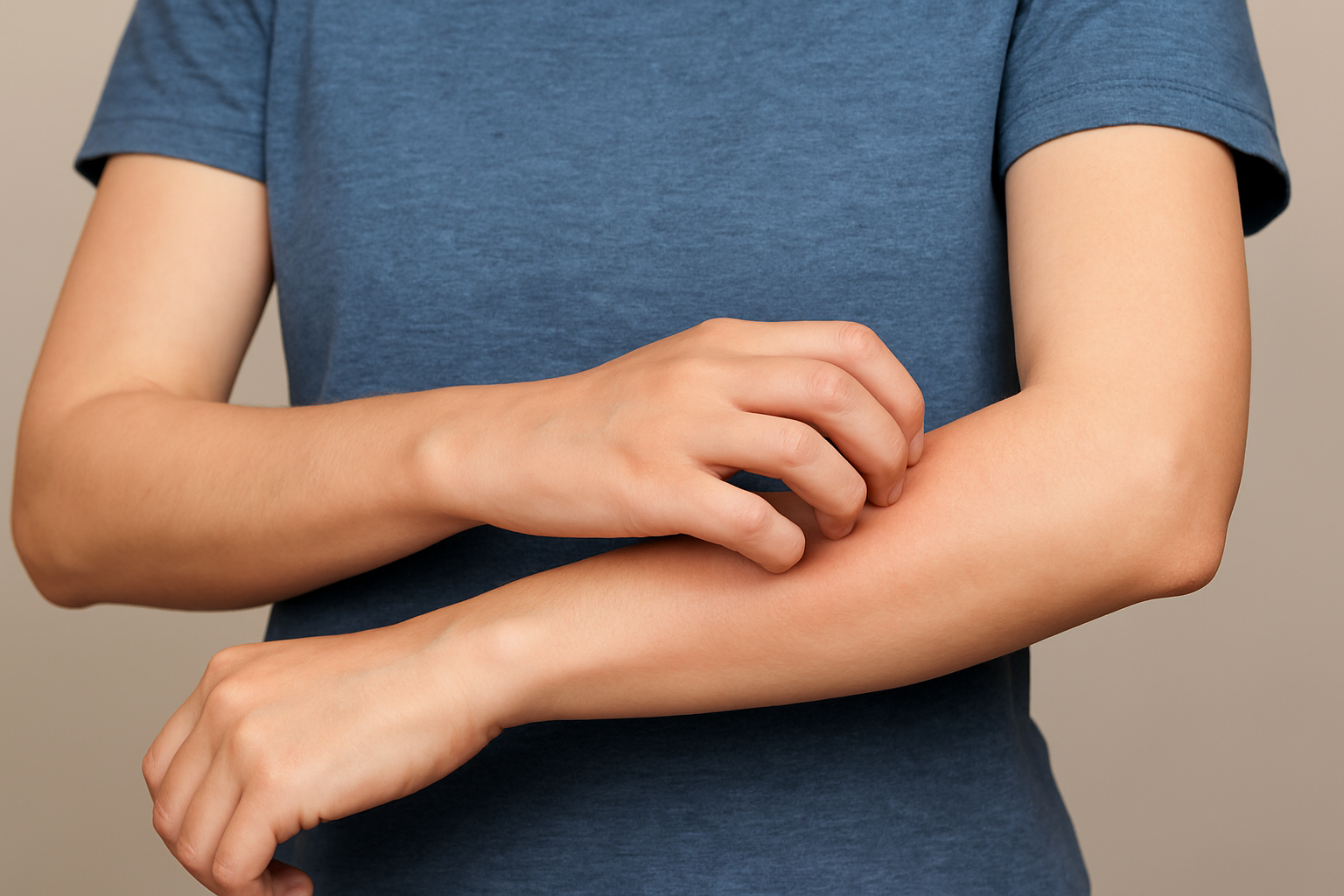Kharish, or itching, is a common skin condition that can affect people of all ages. It can occur due to dryness, allergies, infections, or skin diseases. Many people in Pakistan suffer from this uncomfortable condition, often looking for effective and safe treatment options. This guide will help you understand what causes kharish, how it can be treated, and what medicines are commonly used for its relief. If you are facing severe or long-lasting kharish, it is always better to consult a doctor for proper treatment.
What Causes Kharish on the Skin?
Kharish can develop due to several reasons. Identifying the root cause can help in choosing the right treatment. Below are some common causes:
Dry Skin (Sookhi Jild)
- Common in winter or due to dehydration
- Causes flaking and itching
- Often relieved with moisturizing creams or oils
Allergic Reactions
- Caused by soaps, detergents, food, or dust
- Leads to redness, rashes, and itching
- Antihistamine tablets or creams may help
Skin Infections
- Fungal or bacterial infections can cause severe kharish
- Often seen in sweaty or humid body areas
- Require antifungal or antibiotic treatment
H3: Scabies (Cheenchak Ya Khujli)
- Caused by tiny mites living under the skin
- Intense itching, especially at night
- Needs proper medical treatment and hygiene
How to Identify the Type of Kharish?
Recognizing the symptoms can make it easier to choose the right medicine. Here’s how to differentiate between types:
| Type of Kharish | Signs and Symptoms |
|---|---|
| Dry Skin | Rough, flaky, and itchy skin |
| Allergic Rash | Red spots, swelling, itching |
| Fungal Infection | Circular patches, itching, smell |
| Scabies | Burrows, intense night itching |
| Heat Rash | Tiny red bumps, sweating areas |
Kharish Ka Ilaj Medicine Name in Pakistan
Here are some commonly available medicines for kharish treatment. These are not brand promotions but for general knowledge.
For Fungal Infections
- Clotrimazole Cream – Used for fungal skin issues
- Miconazole – Helps treat athlete’s foot and ringworm
For Allergies and Rashes
- Cetirizine Tablets – Reduces allergic itching
- Loratadine – Non-drowsy option for allergy symptoms
- Hydrocortisone Cream – Mild steroid to relieve inflammation
For Scabies
- Permethrin Cream (5%) – Main treatment for scabies
- Sulfur Ointment – Alternative option, especially for children
Natural and Herbal Options
While not a replacement for medicine, some herbal remedies may help in mild kharish:
- Neem Leaves Paste
- Aloe Vera Gel
- Coconut Oil
Note: Always do a patch test before trying any new product or consult a healthcare professional for serious conditions.
General Tips to Avoid Kharish
- Stay Clean: Bathe daily and change clothes regularly
- Use Gentle Soaps: Avoid strong chemical products
- Wear Cotton Clothes: Especially in summer
- Avoid Scratching: It can worsen the condition
- Moisturize Daily: Especially in winter season
When to See a Doctor?
- If itching does not improve with basic treatment
- If the skin becomes swollen, painful, or infected
- If there are signs of scabies or a spreading rash
- If you have a fever along with itching
Conclusion
Kharish can be uncomfortable but is usually manageable with the right care and medicine. Knowing the cause of itching is the first step towards getting relief. Whether the issue is dryness, allergy, infection, or scabies, proper treatment and hygiene can help a lot. Common medicines like Cetirizine, Clotrimazole, or Permethrin are often used for relief. However, persistent or severe symptoms should not be ignored. Timely medical guidance can make the treatment more effective. For those searching for Kharish Ka Ilaj Medicine Name in Pakistan, this guide provides a starting point based on symptoms and treatment types.



